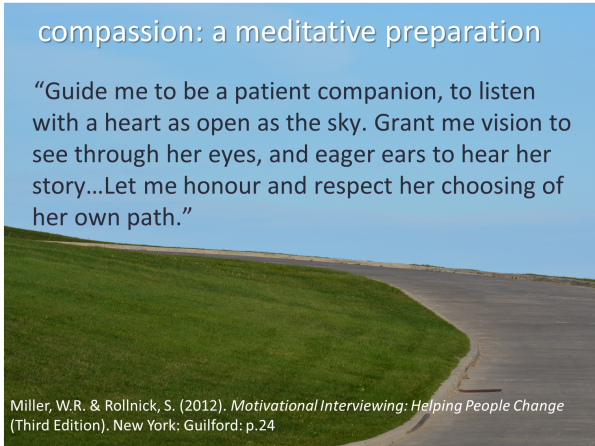Engagement

Nothing is possible without engagement
In any interpersonal interaction, nothing is possible unless there is engagement. This is true whether it’s a one-to-one counselling session, a classroom full of students, or a company team meeting. Engagement is the foundation of relationship, collaboration and change.
It seems like no matter how many years I have spent as a Motivational Interviewing trainer and practitioner, I still find nuances and insights in this model of practice decribed as ‘simple, but not easy‘. Lately I have been thinking about engagement as the essential underlying process in Motivational Interviewing, and mulling over how we can translate the clinical skills of establishing engagement with clients to our everyday skills in educational and work place settings to foster student and employee engagement.
Engagement is less about skill than it is about the spirit in which we practice – as clinicians, educators and leaders
- We come to the relationship from a stance of respectful partnership, where all individuals bring valued and equal expertise
- We unconditionally accept others’ autonomy, worth and capacity – even when their intentions or actions don’t align with what we think best
- We are deeply committed to the highest interests of the other, rather than advancing our own agenda: compassion
- We are as eager to hear others’ stories, perspectives, beliefs, wisdom and values as we are to share our own: evocation as opposed to installation or education.
First and foremost, the spirit of Motivational Interviewing is more important than the skills.
Simple but not easy
Authority is the enemy of engagement


Pingback: The Four Processes of Motivational Interviewing: Spotlight on Evoking | educateria